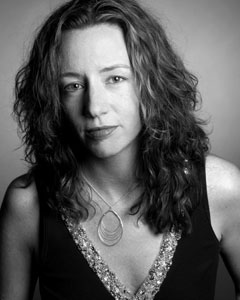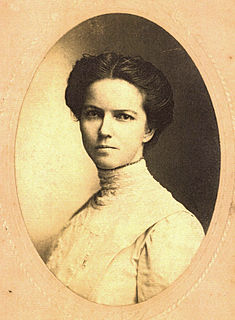A Quote by H. P. Blavatsky
The possible truths, hazily perceived in the world of abstraction, like those inferred from observation and experiment in the world of matter, are forced upon the profane multitudes, too busy to think for themselves, under the form of Divine revelation and scientific authority. But the same question stands open from the days of Socrates and Pilate down to our own age of wholesale negation: is there such a thing as absolute truth in the hands of any one party or man?
Quote Topics
Absolute
Absolute Truth
Abstraction
Age
Any
Authority
Busy
Days
Divine
Divine Revelation
Down
Experiment
Forced
Form
Hands
Like
Man
Matter
Multitudes
Negation
Observation
One Party
Open
Our
Own
Party
Perceived
Possible
Profane
Question
Revelation
Same
Scientific
Stands
Such A Thing
Themselves
Thing
Think
Those
Too
Too Busy
Truth
Truths
Wholesale
World
Related Quotes
If we can't think for ourselves, if we're unwilling to question authority, then we're just putty in the hands of those in power. But if the citizens are educated and form their own opinions, then those in power work for us. In every country, we should be teaching our children the scientific method and the reasons for a Bill of Rights. With it comes a certain decency, humility and community spirit. In the demon-haunted world that we inhabit by virtue of being human, this may be all that stands between us and the enveloping darkness.
I speak "with absolute certainty" only so far as my own personal belief is concerned. Those who have not the same warrant for their belief as I have, would be very credulous and foolish to accept it on blind faith. Nor does the writer believe any more than her correspondent and his friends in any "authority" let alone "divine revelation"!
There is no such thing as absolute truth and absolute falsehood. The scientific mind should never recognise the perfect truth or the perfect falsehood of any supposed theory or observation. It should carefully weigh the chances of truth and error and grade each in its proper position along the line joining absolute truth and absolute error.
In the world of knowledge, the essential Form of Good is the limit of our inquiries, and can barely be perceived; but, when perceived, we cannot help concluding that it is in every case the source of all that is bright and beautiful -in the visible world giving birth to light and its master, and in the intellectual world dispensing, immediately and with full authority, truth and reason -and that whosoever would act wisely, either in private or in public, must set this Form of Good before his eyes.
I've heard it said that grace is God reaching God's hands into the world. And the Bible tells us that we are part of the body of Christ, that if we let the Spirit move through us, we can become the hands of Christ on earth. Hands that heal, bless, unite, and love. I'd like to think God's hands are a bit like Grace's man hands—gentle but big, busy, and tough. God's hands are those of a creator—an artist who molded and shaped the universe out of a void, who hewed matter from nothingness.
...[sacred] doctrine is especially based upon arguments from authority, inasmuch as its principles are obtained by revelation: thus we ought to believe on the authority of those to whom the revelation has been made. Nor does this take away from the dignity of this doctrine, for although the argument from authority based on human reason is the weakest, yet the argument from authority based on divine revelation is the strongest.
At the very outset I have to tell you that truth is what it is. You cannot mold it, you cannot change it. It is always the same. It has been the same, it is the same, it will be the same. But to say that we know the truth and that we have the truth is really a self-deception. If you had known the absolute truth there would have been no problems and everybody would have said the same thing. There would be no discussions, no arguments, no fights and wars. But when we don't know the absolute truth then we can find out our own mental conceptions as the truth. But this mind is so limited.
Truth indeed is sacred; but, as Pilate said, "What is truth?" Show us the undoubted infallible criterion of absolute truth, and we will hold it as a sacred inviolable thing. But in the absence of that infallible criterion, we have all an equal right to grope about in our search of it, and no body and no school nor clique must be allowed to set up a standard of orthodoxy which shall bar the freedom of scientific inquiry.
Sacred Scripture, since it has no science above itself, can dispute with one who denies its principles only if the opponent admits some at least of the truths obtained through divine revelation; thus we can argue with heretics from texts in Holy Writ, and against those who deny one article of faith we can argue from another. If our opponent believes nothing of divine revelation, there is no longer any means of proving the articles of faith by reasoning, but only of answering his objections - if he has any - against faith.
For in all the world there are no people so piteous and forlorn as those who are forced to eat the bitter bread of dependency in their old age, and find how steep are the stairs of another man's house. Wherever they go they know themselves unwelcome. Wherever they are, they feel themselves a burden. There is no humiliation of the spirit they are not forced to endure. Their hearts are scarred all over with the stabs from cruel and callous speeches.
It is always a great honour to mention a truth which has not become widespread yet. One of these truths is that man has no soul; he has only 'body' and 'mind'. Man's unshakable belief on the soul will not change this scientific truth! No belief can be higher than the scientific truths! Man can be born, can walk and work and can think without owning a mysterious and an immaterial soul! The soullessness of the man is a great tragedy both for the man and for the religion. But Man, contrary to the religion, will come out with triumph from this tragedy.
No man is born into the world whose work is not born with him. There is always work, and tools to work with, for those who will, and blessed are the horny hands of toil. The busy world shoves angrily aside the man who stands with arms akimbo until occasion tells him what to do; and he who waits to have his task marked out shall die and leave his errand unfulfilled.
































